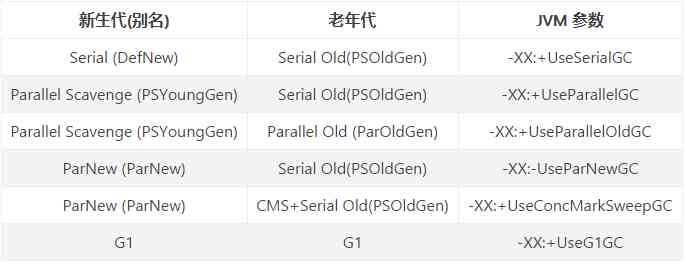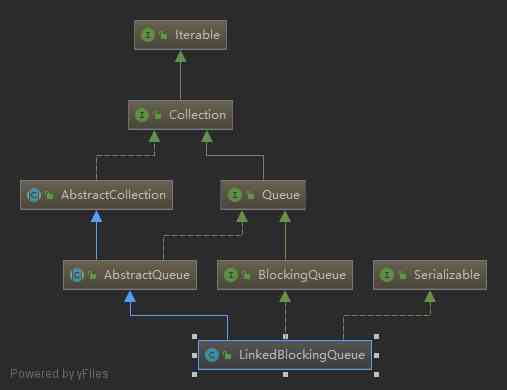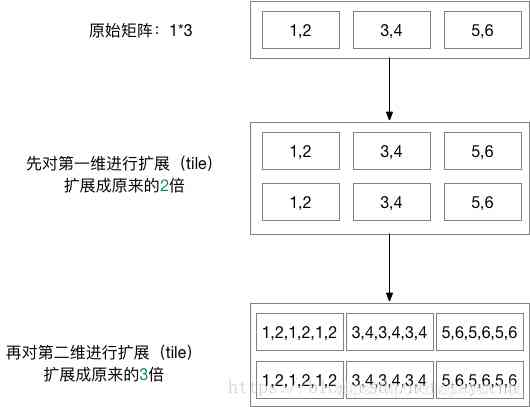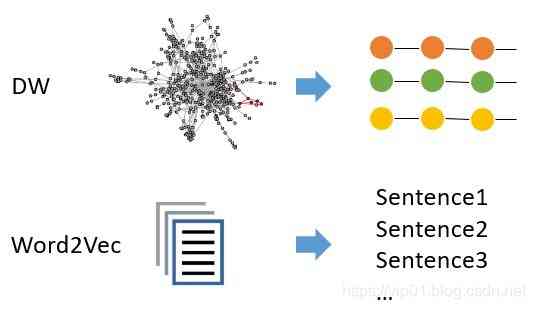One 、 Link tracking
Microservice architecture is to divide a single application into various small and connected services , Each service performs a single business function , They are independent and decoupled from each other , Each service can evolve independently . Compared with the traditional single service , Microservices are isolated 、 Technology heterogeneity 、 Scalability and simplified deployment .
alike , Microservice architecture brings many benefits at the same time , It also adds a lot of complexity to the system . It's a distributed service , Usually deployed in different data centers 、 On the cluster of different servers . and , The same microservice system may be composed of different teams 、 Developed in different languages . Usually, an application consists of multiple microservices , The data interaction between microservices needs to be completed through remote procedure call , So in a system of many microservices , Requests need to flow between services , The call link is complex , When something goes wrong , It is very difficult to locate problems and trace anomalies .
Link tracking system is to solve the above problems , It is used to track the complete call link for each request , Record the name of the task called from the beginning of the request to the end of the request 、 Time consuming 、 Tag data and log information , And through the visual interface analysis and display , To help technicians accurately locate abnormal Services 、 Find performance bottlenecks 、 Sort out the call link and estimate the system capacity .
Almost all of the theoretical models of link tracking system refer to Google A paper on ”Dapper, a Large-Scale Distributed Systems Tracing Infrastructure”, Typical products are Uber jaeger、Twitter zipkin、 Taobao eagle eye, etc . These products are implemented in different ways , But there are generally three core steps : Data collection 、 Data storage and query presentation .
Link tracking system first step , And the most basic work is data collection . In the process , The link tracking system needs to invade the user code to bury the point , Used to collect tracking data . But because of different link tracking systems API Not compatible with each other , So there are different ways to write buried code , As a result, users need to make great changes when switching different link tracking products . To solve this kind of problem , So it was born OpenTracing standard , Designed to unify link tracking systems API.
Two 、OpenTracing standard
OpenTracing It's a distributed tracing protocol , It's not about the platform or the language , It has a unified interface specification , Easy access to different distributed tracking systems .
OpenTracing The semantic specification can be found in :https://github.com/opentracing/specification/blob/master/specification.md
2.1 Data model (Data Model)
OpenTracing The data models defined in the semantic specification are Trace、Sapn as well as Reference.
2.1.1 Trace
Trace Represents a complete tracking link , for example : The execution of a transaction or process . One Trace It's made up of one or more Span Composed of directed acyclic graphs (DAG).
The figure below shows an example by 8 individual Span Composed of Trace:
[Span A] ←←←(the root span)
|
+------+------+
| |
[Span B] [Span C] ←←←(Span C is a `ChildOf` Span A)
| |
[Span D] +---+-------+
| |
[Span E] [Span F] >>> [Span G] >>> [Span H]
↑
↑
↑
(Span G `FollowsFrom` Span F)
According to the time axis way, it is more intuitive to show the Trace:
––|–––––––|–––––––|–––––––|–––––––|–––––––|–––––––|–––––––|–> time
[Span A···················································]
[Span B··············································]
[Span D··········································]
[Span C········································]
[Span E·······] [Span F··] [Span G··] [Span H··]
2.1.2 Span
Span Represents an independent unit of work , It's the basic component of a tracking link . for example : once RPC call 、 A function call or Http request .
Every Span Encapsulates the following states :
-
Operation name
Used to indicate that Span Task name of . for example : One RPC Method name , A function name , Or the name of a subtask in a large task .
-
Start timestamp
Mission start time .
-
End timestamp .
Mission end time . adopt Span End timestamp and start timestamp of , You can figure out what to do Span The overall time taken .
-
A group of Span label
every last Span A tag is a key value pair . The key must be a string , The value can be a string 、 Boolean or numeric type . Common label keys can refer to :https://github.com/opentracing/specification/blob/master/semantic_conventions.md
-
A group of Span journal
Every one of them Span The log consists of a key value pair and a corresponding timestamp . The key must be a string , Values can be of any type . Common log key reference :https://github.com/opentracing/specification/blob/master/semantic_conventions.md
2.1.3 Reference
One Span Can be associated with one or more Span There is a causal relationship , This relationship is called Reference.OpenTracing Two relationships are currently defined :ChildOf( Father and son ) Relationship and FollowsFrom( Follow ) Relationship .
-
ChildOf Relationship
Father Span According to laizi Span The results of the implementation of , Now Span To the father Span Of Reference The relationship is ChildOf. For example, for once RPC call , Server side Span( Son Span) With the client to call Span( Father Span) Namely ChildOf Relationship .
-
FollowsFrom Relationship
Father Span The implementation of the law is not dependent on laizi Span The results of the implementation of , Now Span To the father Span Of Reference The relationship is FollowFrom.FollowFrom Often used to represent asynchronous calls , For example, in the message queue Consumer Span And Producer Span The relationship between .
2.2 Application interface (API)
2.2.1 Tracer
Tracer Interface is used to create Span、 Cross process injection and extraction of data . It usually has the following functions :
- Start a new span
Create and launch a new Span. - Inject
take SpanContext Injection carrier (Carrier). - Extract
From the carrier (Carrier) Extract from SpanContext.
2.2.2 Span
-
Retrieve a SpanContext
return Span Corresponding SpanContext. -
Overwrite the operation name
Update operation name . -
Set a span tag
Set up Span Tag data . -
Log structured data
Recording structured data . -
Set a baggage item
baggage item It's a string type key value pair , It corresponds to something Span, along with Trace Spread together . Because each key value is copied to every local and remote child Span, This can lead to huge networks and CPU expenses . -
Get a baggage item
obtain baggage item Value . -
Finish
End one Span.
2.2.3 Span Context
Used to carry data across service boundaries , Include trace ID、Span ID And need to spread downstream Span Of baggage data . stay OpenTracing in , Mandatory requirements SpanContext Instances are immutable , To avoid being in Span Complex lifecycle issues with completion and reference .
2.2.4 NoopTracer
All right OpenTracing API The implementation of the , Some form of NoopTracer, For marking control OpenTracing Or inject something harmless to the test .
3、 ... and 、Jaeger
Jaeger yes Uber Open source distributed tracking system , Its application interface completely follows OpenTracing standard .jaeger It uses go Language writing , It has the characteristics of cross platform and cross language , Provides a variety of language client call interface , for example c++、java、go、python、ruby、php、nodejs etc. . Project address :https://github.com/jaegertracing
3.1 Jaeger Components
[ Failed to transfer the external chain picture , The origin station may have anti-theft chain mechanism , It is suggested to save the pictures and upload them directly (img-miLIEWHv-1604561903414)(https://i.loli.net/2020/04/13/bvTxdUkBRuawY1F.png)]
-
jaeger-client
jaeger The client code base of , It has achieved OpenTracing agreement . When our application assembles it , Responsible for collecting data , And send it to jaeger-agent. This is the only place we need to write code .
-
jaeger-agent
Responsible for receiving from jaeger-client It's from Trace/Span Information , And upload them to jaeger-collector.
-
jaeger-collector
Responsible for receiving from jaeger-agent It's from Trace/Span Information , And after verification 、 Index, etc , And then write to the back-end storage .
-
data store
Responsible for data storage .Jaeger Data storage is a pluggable component , At present, we support Cassandra、ElasticSearch and Kafka.
-
jaeger-query & ui
Responsible for data query , And display the query results through the front-end interface .
[ Failed to transfer the external chain picture , The origin station may have anti-theft chain mechanism , It is suggested to save the pictures and upload them directly (img-ogkrm3Hb-1604561903417)(https://i.loli.net/2020/04/13/UMoHYtlX1ydsx5Q.jpg)]
3.2 Quick start
Jaeger The official provided all-in-one Mirror image , Easy and fast testing :
# Pull the mirror image
$docker pull jaegertracing/all-in-one:latest
# Running the mirror
$docker run -d --name jaeger \
-e COLLECTOR_ZIPKIN_HTTP_PORT=9411 \
-p 5775:5775/udp \
-p 6831:6831/udp \
-p 6832:6832/udp \
-p 5778:5778 \
-p 14268:14268 \
-p 9411:9411 \
-p 16686:16686 \
jaegertracing/all-in-one:latest
adopt all-in-one The image starts , We found that Jaeger It takes up a lot of ports . Here are the port instructions :
| port | agreement | The module it belongs to | function |
|---|---|---|---|
| 5775 | UDP | agent | Receive compressed format Zipkin thrift data |
| 6831 | UDP | agent | Receive compressed format Jaeger thrift data |
| 6832 | UDP | agent | Receive in binary format Jaeger thrift data |
| 5778 | HTTP | agent | Service configuration 、 Sampling policy port |
| 14268 | HTTP | collector | Receive a message sent directly by the client Jaeger thrift data |
| 9411 | HTTP | collector | receive Zipkin Sent json perhaps thrift data |
| 16686 | HTTP | query | Browser display port |
After starting , We can visit http://localhost:16686 , View and query the collected data in the browser .
Because through all-in-one The data collected in the mirror mode is stored in docker in , Can't persist , So it can only be used in development or test environments , Can't be used in a production environment . According to the actual situation in the production environment , Deploy each component separately .
Four 、Jaeger Application in business code
The system uses Jaeger It's simple , Just insert a small amount of code into the original program . The following code simulates a query user account balance , The business scenario of executing the deduction :
4.1 initialization jaeger function
It mainly configures the relevant parameters according to the actual needs , For example, the service name 、 Sampling mode 、 Sampling ratio and so on .
func initJaeger() (tracer opentracing.Tracer, closer io.Closer, err error) {
// Construct configuration information
cfg := &config.Configuration{
// Set the service name
ServiceName: "ServiceAmount",
// Set the sampling parameters
Sampler: &config.SamplerConfig{
Type: "const", // Full sampling mode
Param: 1, // On state
},
}
// Generate a new tracer
tracer, closer, err = cfg.NewTracer()
if err == nil {
// Set up tracer Is a global singleton object
opentracing.SetGlobalTracer(tracer)
}
return
}
4.2 Check the user balance function
Used to detect user balance , Simulate a subtask Span.
func CheckBalance(request string, ctx context.Context) {
// Create a child span
span, _ := opentracing.StartSpanFromContext(ctx, "CheckBalance")
// The simulation system performs a series of operations , Time consuming 1/3 second
time.Sleep(time.Second / 3)
// Example : Put the information that needs to be tracked into tag
span.SetTag("request", request)
span.SetTag("reply", "CheckBalance reply")
// End the present span
span.Finish()
log.Println("CheckBalance is done")
}
4.3 Debit function from user account
Deduct money from a user's account , Simulate a subtask span.
func Reduction(request string, ctx context.Context) {
// Create a child span
span, _ := opentracing.StartSpanFromContext(ctx, "Reduction")
// The simulation system performs a series of operations , Time consuming 1/2 second
time.Sleep(time.Second / 2)
// Example : Put the information that needs to be tracked into tag
span.SetTag("request", request)
span.SetTag("reply", "Reduction reply")
// End the present span
span.Finish()
log.Println("Reduction is done")
}
4.4 The main function
initialization jaeger Environmental Science , Generate tracer, Create a father span, And call query balance and deduction two subtasks span.
package main
import (
"context"
"fmt"
"github.com/opentracing/opentracing-go"
"github.com/uber/jaeger-client-go/config"
"io"
"log"
"time"
)
func main() {
// initialization jaeger, Create a new tracer
tracer, closer, err := initJaeger()
if err != nil {
panic(fmt.Sprintf("ERROR: cannot init Jaeger: %v\n", err))
}
defer closer.Close()
// Create a new span, As a father span, Start the billing process
span := tracer.StartSpan("CalculateFee")
// Generative father span Of context
ctx := opentracing.ContextWithSpan(context.Background(), span)
// Example : Set up a span Tag information
span.SetTag("db.instance", "customers")
// Example : Output a span Log information
span.LogKV("event", "timed out")
// Will father span Of context As a parameter , Call the check user balance function
CheckBalance("CheckBalance request", ctx)
// Will father span Of context As a parameter , Call the deduction function
Reduction("Reduction request", ctx)
// End father span
span.Finish()
}
5、 ... and 、Jaeger stay gRPC Applications in microservices
We still simulate a query user account balance , The business scenario of executing the deduction , And the query user account balance and the implementation of deduction function into gRPC Microservices :
5.1 gRPC Server End code
main.go:
Relying on a third-party code base github.com/grpc-ecosystem/go-grpc-middleware/tracing/opentracing, The dependency library will OpenTracing Package as generic gRPC middleware , And pass gRPC Interceptors are embedded seamlessly gRPC In service .
package main
import (
"fmt"
"github.com/grpc-ecosystem/go-grpc-middleware/tracing/opentracing"
"github.com/opentracing/opentracing-go"
"github.com/uber/jaeger-client-go/config"
"google.golang.org/grpc"
"google.golang.org/grpc/reflection"
"grpc-jaeger-server/account"
"io"
"log"
"net"
)
// initialization jaeger
func initJaeger() (tracer opentracing.Tracer, closer io.Closer, err error) {
// Construct configuration information
cfg := &config.Configuration{
// Set the service name
ServiceName: "ServiceAmount",
// Set the sampling parameters
Sampler: &config.SamplerConfig{
Type: "const", // Full sampling mode
Param: 1, // Turn on full sampling mode
},
}
// Generate a new tracer
tracer, closer, err = cfg.NewTracer()
if err == nil {
// Set up tracer Is a global singleton object
opentracing.SetGlobalTracer(tracer)
}
return
}
func main() {
// initialization jaeger, Create a new tracer
tracer, closer, err := initJaeger()
if err != nil {
panic(fmt.Sprintf("ERROR: cannot init Jaeger: %v\n", err))
}
defer closer.Close()
log.Println("succeed to init jaeger")
// register gRPC account service
server := grpc.NewServer(grpc.UnaryInterceptor(grpc_opentracing.UnaryServerInterceptor(grpc_opentracing.WithTracer(tracer))))
account.RegisterAccountServer(server, &AccountServer{})
reflection.Register(server)
log.Println("succeed to register account service")
// monitor gRPC account Service port
listener, err := net.Listen("tcp", ":8080")
if err != nil {
log.Println(err)
return
}
log.Println("starting register account service")
// Turn on gRpc account service
if err := server.Serve(listener); err != nil {
log.Println(err)
return
}
}
Billing microservices accountsever.go:
package main
import (
"github.com/opentracing/opentracing-go"
"golang.org/x/net/context"
"grpc-jaeger-server/account"
"time"
)
// Billing services
type AccountServer struct{}
// Detect user balance microservices , The simulator span Mission
func (s *AccountServer) CheckBalance(ctx context.Context, request *account.CheckBalanceRequest) (response *account.CheckBalanceResponse, err error) {
response = &account.CheckBalanceResponse{
Reply: "CheckBalance Reply", // Processing results
}
// Create a child span
span, _ := opentracing.StartSpanFromContext(ctx, "CheckBalance")
// The simulation system performs a series of operations , Time consuming 1/3 second
time.Sleep(time.Second / 3)
// Put the information that needs to be tracked into tag
span.SetTag("request", request)
span.SetTag("reply", response)
// End the present span
span.Finish()
return response, err
}
// Deduct micro service from user account , The simulator span Mission
func (s *AccountServer) Reduction(ctx context.Context, request *account.ReductionRequest) (response *account.ReductionResponse, err error) {
response = &account.ReductionResponse{
Reply: "Reduction Reply", // Processing results
}
// Create a child span
span, _ := opentracing.StartSpanFromContext(ctx, "Reduction")
// The simulation system performs a series of operations , Time consuming 1/3 second
time.Sleep(time.Second / 3)
// Put the information that needs to be tracked into tag
span.SetTag("request", request)
span.SetTag("reply", response)
// End the present span
span.Finish()
return response, err
}
5.2 gRPC Client End code main.go:
package main
import (
"context"
"fmt"
"github.com/grpc-ecosystem/go-grpc-middleware/tracing/opentracing"
"github.com/opentracing/opentracing-go"
"github.com/uber/jaeger-client-go/config"
"google.golang.org/grpc"
"grpc-jaeger-client/account"
"io"
"log"
)
// initialization jaeger
func initJaeger() (tracer opentracing.Tracer, closer io.Closer, err error) {
// Construct configuration information
cfg := &config.Configuration{
// Set the service name
ServiceName: "ServiceAmount",
// Set the sampling parameters
Sampler: &config.SamplerConfig{
Type: "const", // Full sampling mode
Param: 1, // Turn on full sampling mode
},
}
// Generate a new tracer
tracer, closer, err = cfg.NewTracer()
if err == nil {
// Set up tracer Is a global singleton object
opentracing.SetGlobalTracer(tracer)
}
return
}
func main() {
// initialization jaeger, Create a new tracer
tracer, closer, err := initJaeger()
if err != nil {
panic(fmt.Sprintf("ERROR: cannot init Jaeger: %v\n", err))
}
defer closer.Close()
log.Println("succeed to init jaeger")
// Create a new span, As a father span
span := tracer.StartSpan("CalculateFee")
// Turn off when function returns span
defer span.Finish()
// Generate span Of context
ctx := opentracing.ContextWithSpan(context.Background(), span)
// Connect gRPC server
conn, err := grpc.Dial("localhost:8080",
grpc.WithInsecure(),
grpc.WithUnaryInterceptor(grpc_opentracing.UnaryClientInterceptor(grpc_opentracing.WithTracer(tracer),
)))
if err != nil {
log.Println(err)
return
}
// establish gRPC Billing service client
client := account.NewAccountClient(conn)
// Will father span Of context As a parameter , Call to check the balance of the user gRPC Microservices
checkBalanceResponse, err := client.CheckBalance(ctx,
&account.CheckBalanceRequest{
Account: "user account",
})
if err != nil {
log.Println(err)
return
}
log.Println(checkBalanceResponse)
// Will father span Of context As a parameter , Call the deduction of gRPC Microservices
reductionResponse, err := client.Reduction(ctx,
&account.ReductionRequest{
Account: "user account",
Amount: 1,
})
if err != nil {
log.Println(err)
return
}
log.Println(reductionResponse)
}
notes :
The source code of this article is located in :https://github.com/wangshizebin/micro-service
The development tool used in this paper is :goland From Swish Download







